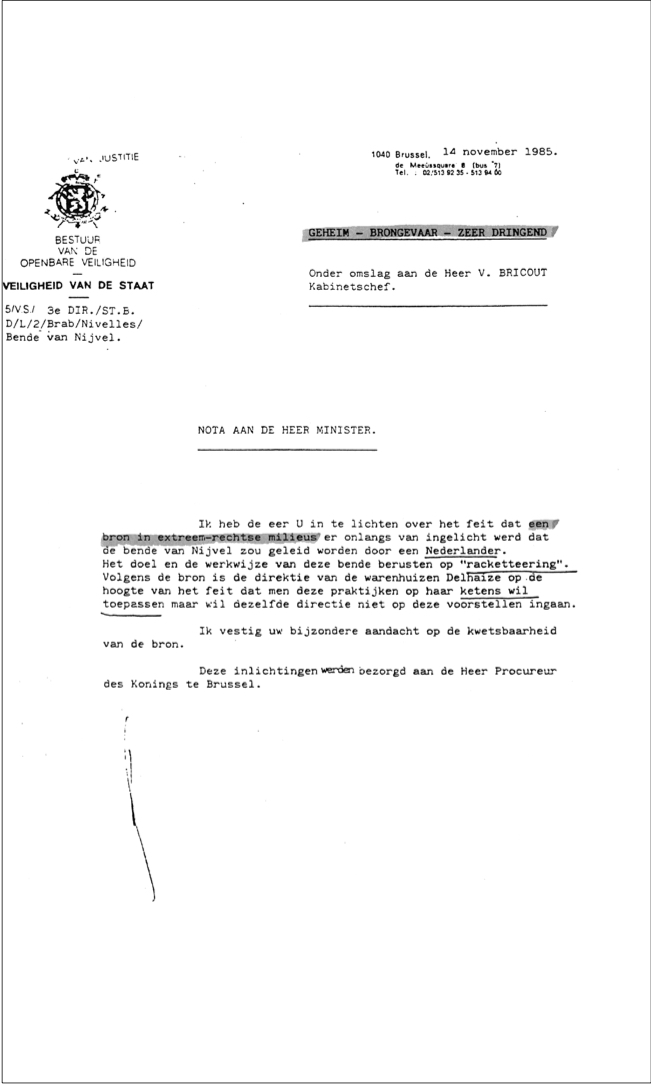Topic: Racketeering
Eén van de mogelijke hypotheses in het Bende-dossier is racketeering. Wikipedia geeft voor dit fenomeen volgende definitie:
A racket is a service that is fraudulently offered to solve a problem, such as for a problem that does not actually exist, that will not be put into effect, or that would not otherwise exist if the racket did not exist. Conducting a racket is racketeering. Particularly, the potential problem may be caused by the same party that offers to solve it, although that fact may be concealed, with the specific intent to engender continual patronage for this party.
An archetype is the protection racket, wherein a person or group indicates that they could protect a store from potential damage, damage that the same person or group would otherwise inflict, while the correlation of threat and protection may be more or less deniably veiled, distinguishing it from the more direct act of extortion.
Racketeering is often associated with organized crime, and the term was coined by the Employers' Association of Chicago in June 1927 in a statement about the influence of organized crime in the Teamsters union.
Vooral voor de feiten in 1985 bestaan er aanwijzingen dat Delhaize het slachtoffer was van een racket. In het derde boek van Guy Bouten staat een nota van de Staatsveiligheid met de specificaties 5/V.S./3de DIR. ST. B/BRAB/NIVELLES/Bende van Nijvel. De nota was gericht aan Victor Bricout, kabinetschef van minister Gol. Onder de hoofding 'GEHEIM-BRONGEVAAR-ZEER DRINGEND' staat:
"Nota aan de minister. Ik heb de eer u in te lichten over het feitdat een bron in extreemrechtse milieus er onlangs van ingelicht werd dat het doel en de werkwijze van deze bende berusten op racketeering. Volgens de bron is de directie van de supermarkten Delhaize op de hoogte van het feit dat men deze praktijken op haarketens wil toepassen, maar wil dezelfde directie niet op deze voorstellen ingaan."
Hieronder de bewuste nota:
